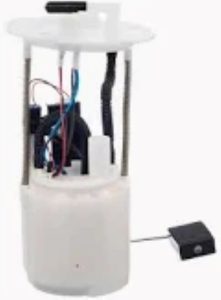If we are talking about backfiring mainly, then a poor fuel pump can do it because you will disturb the regular air-fuel mixture needed for combustion. Such unburned fuel could ignite at the “wrong” time—for example, in a vehicle's exhaust or intake manifolds (backfiring). A fuel pump, particularly an in-tank fuel pump, is responsible for supply the engine with gasoline at a specific pressure which varies from 30 to 80 psi depending on a vehicle. As the pump sir to fail, it can provide insufficient fuel forcing a lean air/fuel ratio and inducing backfire.
Failure of the Fuel Pump This is often triggered when fuel delivery is sporadic and can result in the engine not getting enough fuel during higher speeds or under load (as in acceleration). The engine misfires due to this intermittent fuel supply and any leftover fuel in the exhaust system will ignite when it runs into the hot exhaust components. Therefore, drivers may also hear loud pops or bangs from the exhaust. One study conducted by the National Institute for Automotive Service Excellence (ASE) found that fuel system problems, which include a bad fuel pump, are responsible for upwards of 9.1% complaints of backfiring with vehicles at least one year old and brought in for diagnostic work.
A poorly-regulated fuel pressure is a leading cause of backfiring — along with a thin fuel mixture. A stable fuel pump pressure is needed to make sure that the engine injectors can spray a proper amount of fuel. If the pump becomes weak, it will lead to pressure vibrations resulting in improper combustion process. Under such circumstances, the engine might operate with incomplete combustion which causes off-time misfires and consequentially backfires as unburned fuel escapes through the exhaust pipe and is ignited in the exhaust system.

In one instance, several major automobile companies recalled vehicles because faulty fuel pumps were causing inadequate fuel delivery, resulting in engine coughing and stalling. These examples illustrate the affect a failing fuel pump can have on an engine causing it to backfire.
In addition to any damage that might be done by backfiring, such as to the exhaust system or catalytic converter, drivers need to tend to problems with their fuel pump quickly in order not to suffer more extensive engine troubles. To correct the backfiring; proper fuel pressure may be restored when a Fuel Pump is replaced. Preventable fuel pump failure can also be avoided, as is the case with other fuel system related problems, by performing routine maintenance including checking your fuel filters and maintaining clean fuel in the system.
So, to wrap this all up, a backfiring fuel pump could happen if the air-fuel mixture is disturbed and it leads to an incomplete combustion. The sooner you catch the problem, the less damage is likely to be done to your engine.